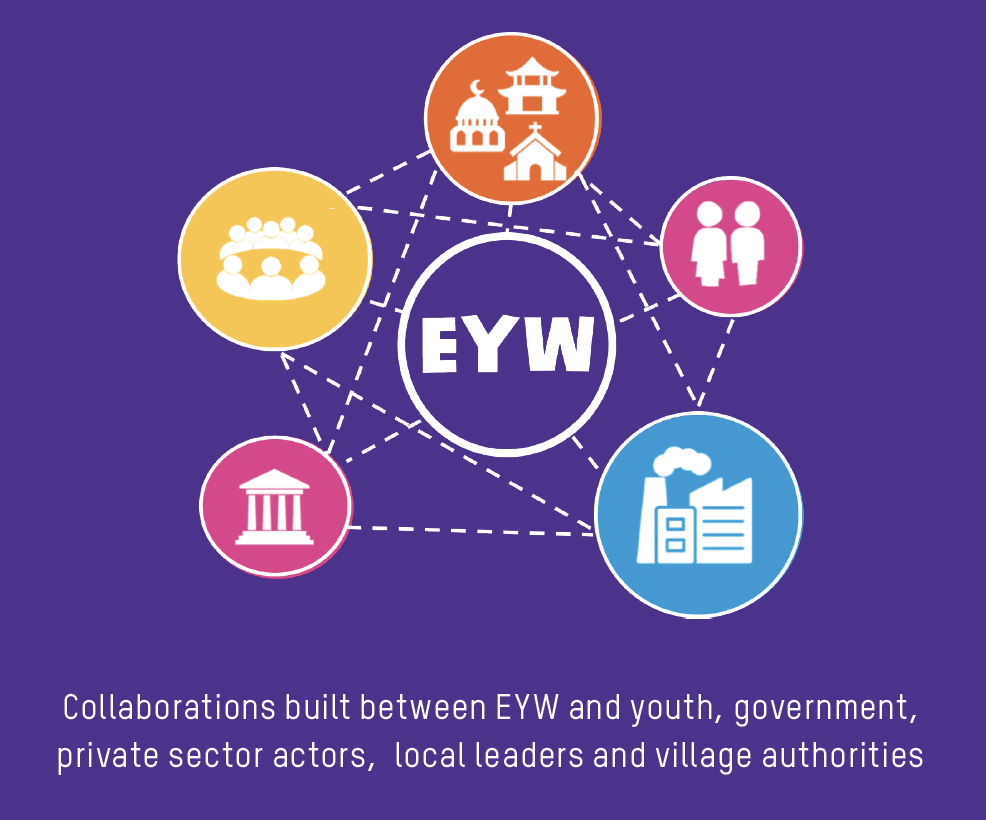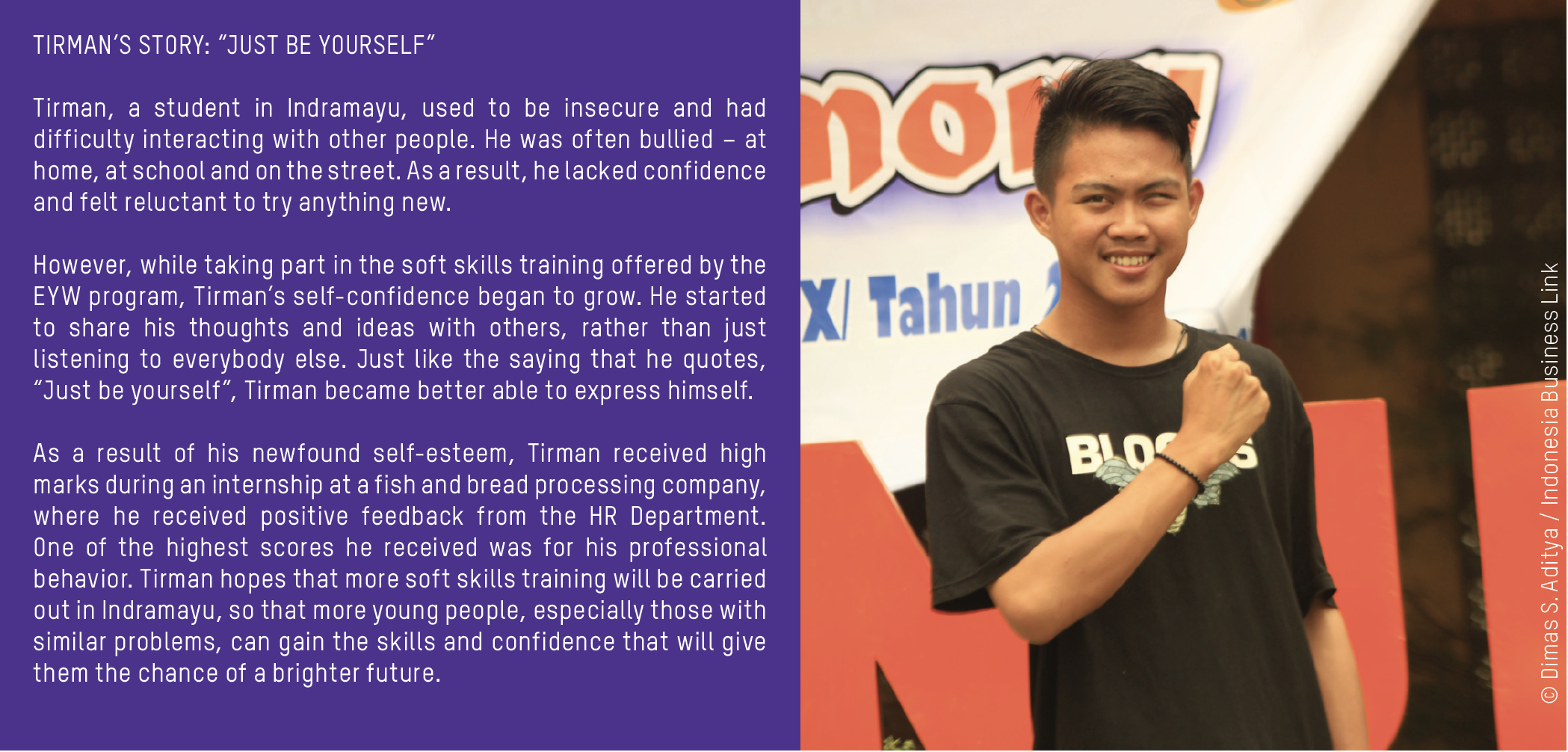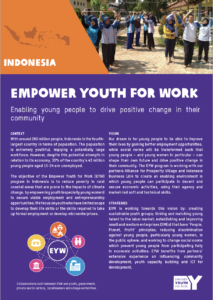Indonesia year 3 overview
The third year of the project Empower Youth for Work in Indonesia has focused on building agency and skills through soft skill training and ICT literacy training. Next to that EYW started collaborating with Karang Taruna in all three provinces and the community based tourism pilot took shape.
Key achievements
EYW in Indonesia is empowering young people in three provinces through a series of interventions which build their agency and skills and help them find employment. By the end of year 3, we had reached 1,185 young people through soft skills training.
Because the ICT literacy rate in rural coastal areas is lower than it is in the cities, we have tailor-made the ICT module to better match employer demands and we are working with ICT volunteer networks to run pop-up ICT classes. So far, we have supported 669 youth with ICT literacy training, giving them a basic understanding of ICT for business.
EYW is collaborating with the respective district governments, young people, community leaders and private sector actors in targeted provinces. As of year 3 it is also getting support from Karang Taruna, a youth organization created by the Ministry of Social Affairs, which is collaborating in EYW activities in all three provinces.

Innovation and pilots
During the third quarter of year 3, Oxfam in Indonesia started a community-based tourism pilot to help develop tourism which benefits wider communities rather than a few select companies. This followed on from the E-Motive exchange that took place at the start of the year, in which a group from the EYW program in Indonesia visited their counterparts in the Philippines to share knowledge and good practice in community-based tourism. Strong engagement with and influencing of local government to support this pilot resulted in successful agreement, whereby Oxfam and local partners have the local government’s full support to develop community-based tourism with the involvement of young people. An assessment and ‘visioning’ plan on community-based tourism resources was carried out in two targeted areas (Barru and Pangkep, South Sulawesi) to focus on the sites to be developed. The initiative will be managed by youth and local communities to develop tourism which will increase economic activities and opportunities in the area.
EYW in Indonesia also used the Human-Centered Design (HCD) approach to enable young people to identify, develop and solve problems in their community through the Youth Hub. Using HCD, the program applies a holistic approach to tackle gender-based discrimination, sexual and reproductive health rights (SRHR), and lack of quality education – all of which impact young people, and young women in particular, when it comes to making choices about employment.

Challenges and risks
Due to government suspension of Oxfam’s work, EYW was halted for the first half of the year. The work in one program region had to be handed over to one of our partners, due to government regulations. This delayed progress in implementation that we only started to catch up on during the last two quarters. There is still limited space for visibility for EYW in Indonesia that impacts on the effectiveness of advocacy and influencing work.
We also experienced increased government scrutiny of gender-related activities. As a result we had to postpone GALS (Gender Action Learning System), SRHR and other activities under the ‘enabling environment’ component of EYW. However, it is hoped that the new collaboration with Karang Taruna, as described above, will help to overcome the challenges working with government while increasing the reach of the EYW program.
Year 3 overview in PDF:

